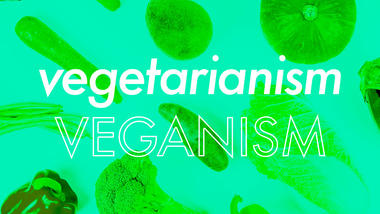
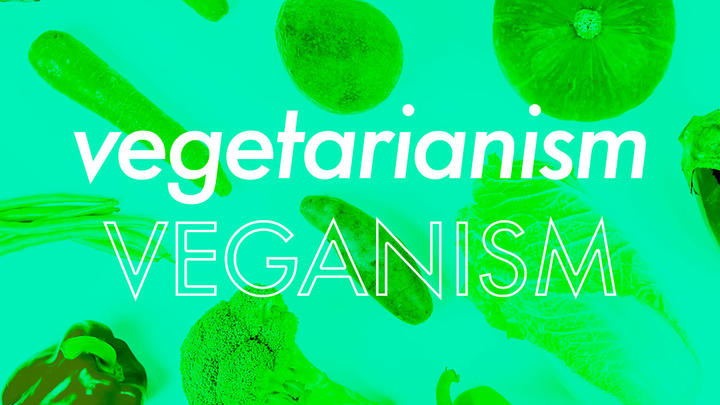
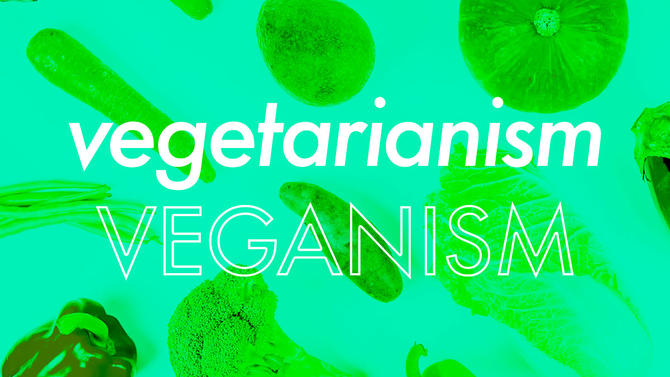
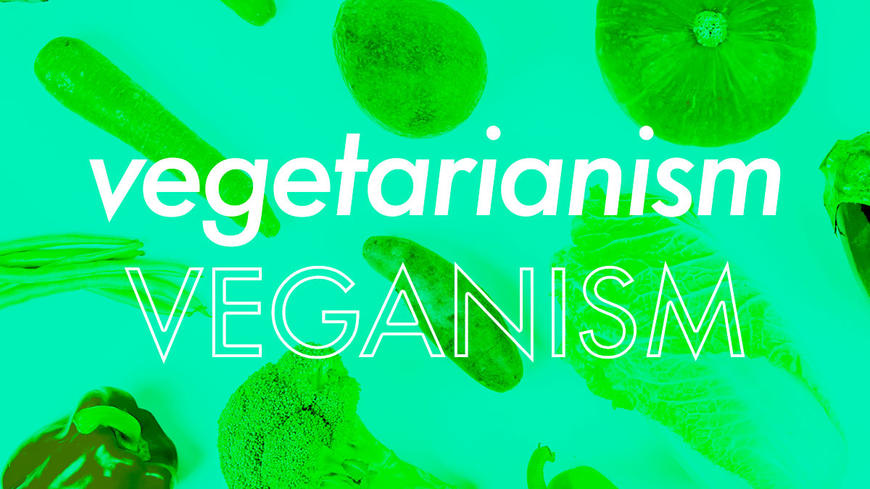
Vegetarianism is a way of life, characterized primarily by nutrition, which excludes the use of the flesh of any animals. Followers of strict vegetarianism, veganism, refuse to use all products of animal origin both in nutrition (milk of animals, eggs) and in everyday life (fur, skin, etc.). In many regions of the world, vegetarianism is associated with economic reasons, because meat products are expensive, very often because of religious or philosophical beliefs. Many vegetarians are disgusted with meat because of compassion for animals and awareness of responsibility for the world's ecology. Others believe that through various meat products, various diseases are transmitted to the person or that antibiotics, pesticides and other harmful substances are contained in them. The growing interest in vegetarianism in recent years is connected with the concern that much more world resources are spent on meat production than on the production of plant products (Robbins, 2010). In general, the fascination with eastern philosophical currents, the desire to improve the quality and duration of human life, as well as the belief in the creation of an ideal community where there is no place for murder, led to the emergence of a large number of new ways and ramifications in vegetarianism. Not even one generation of scientists argue about the benefits of vegetarianism for health. It is believed that it prevents the emergence of many diseases, in particular, reduces the possibility of death from coronary heart disease, diabetes, cancer, among vegetarians there is less frequent hypertension, and the life expectancy of vegetarians is somewhat longer. Despite active discussions about the benefits and dangers of the vegetarian lifestyle, many studies point to the great benefits of vegetarianism in many aspects of life, from the health of mankind to the solution of world problems.
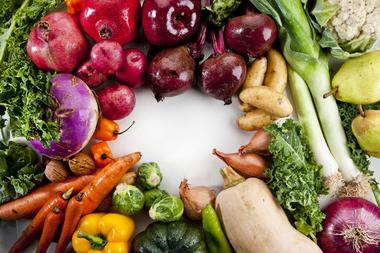
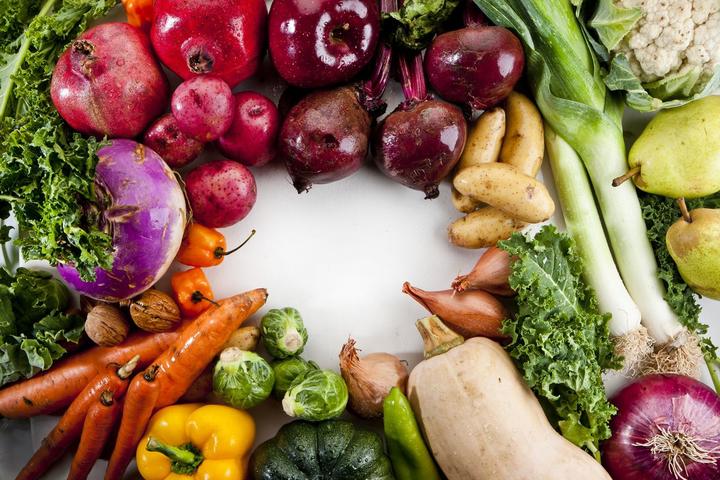
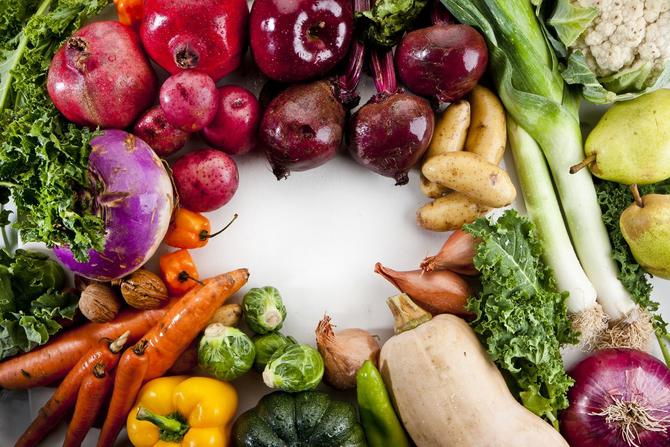
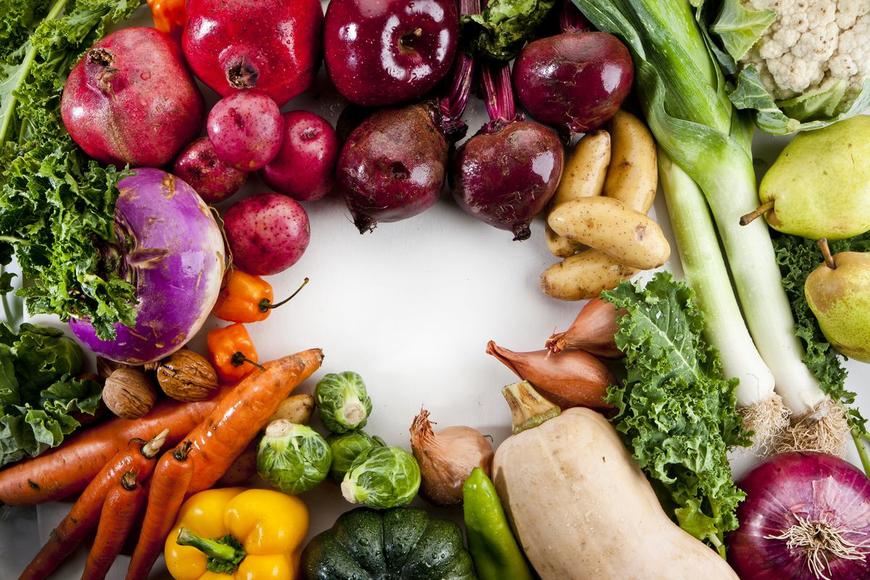
Body
The origins of vegetarianism go back to antiquity. Many groups of the population adhered to the principles of vegetarianism on the basis of religious dogmas for millennia. Then and now, food is one of the foundations for human health. It affects its longevity and quality of life. However, one can only achieve this by eating properly and supplying the body with various substances that contain vitamins and trace elements in the right proportions and quantities. As a rule, in most people, vegetarianism is associated with inadequate nutrition. Many simply do not understand why it is impossible to eat meat and other food of animal origin. Doctors insist that vegetarianism is a very healthy diet. Numerous comparative studies of the health status of vegetarians and meat eaters indicate a variety of benefits of vegetarian nutrition (Robbins, 2010).
Therefore, the benefits of a vegetarian lifestyle are difficult to ignore. With a modern sedentary lifestyle, people are quite sufficient for the energy they receive from vegetables. In addition, the widespread view that the inhabitants of developed countries eat much more than they really need, there is and this brings a lot of problems to the world economy, and the overall health indicator of the inhabitants of developed countries. With this, it is difficult to argue because it is known that the more modest, up to a certain limit, of course, the daily portions of a person, the greater the duration of his life. A vegetarian diet allows cholesterol and saturated fat in the body. Thus, a vegetarian lifestyle allows you to get rid of obesity or avoid this disease in the future, allowing you to lose weight to the norm. Also, the normalization of blood cholesterol levels helps prevent many heart diseases, kidney diseases and even cancer (Robbins, 2010). It is worth remembering that in the meat can contain parasites and diseases that transmit the animals. Therefore, the transition to vegetarianism will prevent infection with animal diseases.
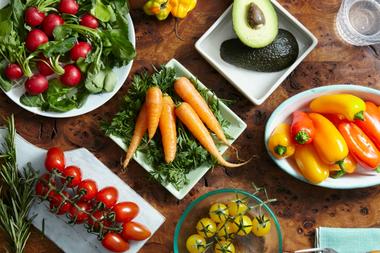



Attached file: Vegetarian Lifestyle: Benefits and Challenges .docx
Click download to get access to a full version of the paper
However, this is true under one condition that the nutrition is balanced, and the body receives the necessary portion of vitamins and minerals. The main products a vegetarian diet is cereals and bread, legumes, nuts, seeds, fruits, vegetables (Robbins, 2010). Primary sources of fat are vegetable oil. Peculiar analogs of dairy products in strict vegetarians are various soy products, such as soy milk and cottage cheese (Robbins, 2010). Some vegetarians consume food, in consistence, color, and smell, similar to meat, poultry or fish, but made from soybeans or other plant products. The needs of the body must be satisfied in the protein, containing in the proper amount all the essential amino acids, as well as the substitutes. Although plant food is relatively poor in one or other of the amino acids necessary for the synthesis of proteins in the body, it can be combined so that there is an entire set of amino acids. Contrary to popular belief, it is not necessary to consume combined products at the same time. Eating enough natural foods completely eliminates the possibility of a lack of protein in the body (Robbins, 2010). Here it is important to understand that the plant world is ultimately the source of all kinds of protein.
There are several aspects that point to the benefits of vegetarianism, such as health, ethics, economics, religion, spirituality, and ecology. The physiological aspect or aspect of health is one of the most controversial and surprising arguments. It is believed that the features of human anatomy and physiology and chemical processes bring it closer to herbivores than carnivores. Despite the belief that vegetarians do not receive important trace elements in the required quantity, studies disprove this and insist on the health benefits. So, scientists say that a balanced vegetarian diet is fully consistent with the production of all the necessary nutrients (Craig and Mangels, 2009). The results of the studies prove the lowering of mortality due to coronary heart disease, diseases associated with blood pressure, lowering the risk of cancer, diabetes, hypertension and many other chronic diseases (Craig and Mangels, 2009). In addition, when talking about vegetarian food at different ages, scientists deny the harm of veganism for children and pregnant women, saying that the properly selected vegetarian diet system does not threaten the health of these people, and can also positively influence their health (Craig and Mangels, 2009). Moreover, the most important contribution of vegetarianism to the health of mankind is the successful struggle against excess weight, which is a common and mass threat to the health and lives of many modern people (Craig and Mangels, 2009).
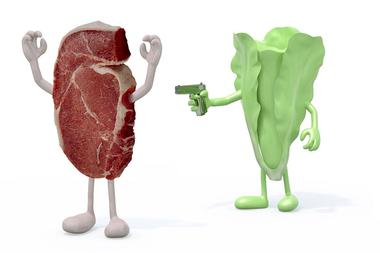
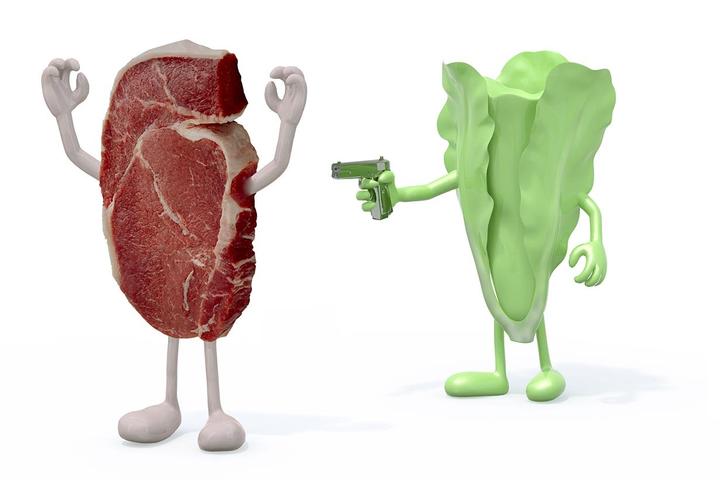
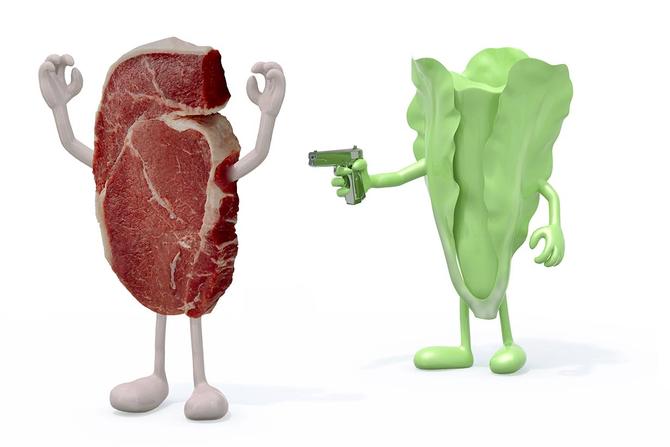
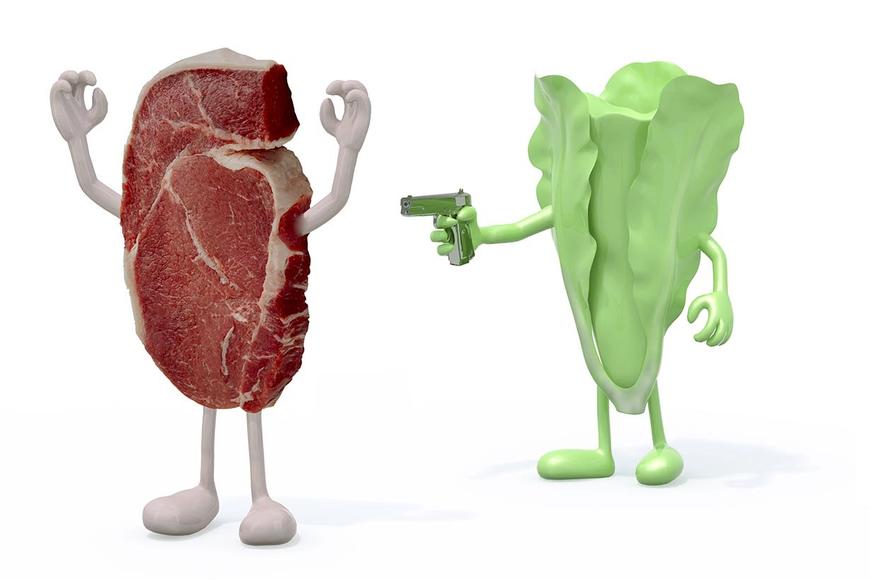
According to many, one of the most important arguments in favor of vegetarianism is ethical considerations, that is, the desire not to cause suffering or death to living beings. Slaughter animals spend all their life in captivity and are doomed to a painful existence, they appear as a result of artificial insemination, are castrated, stimulated by hormones, fattened with unnatural food and then taken to death in terrible conditions (Robbins, 2010). They are constantly in a state of terror and this is transmitted through the meat to those who eat it. In slaughterhouses, animals are deafened by hammer blows, electric shocks or air pistol shots, then suspended by the legs on the transporter, still alive cut the throat and ripped off the skin, so that they die from blood loss (Robbins, 2010). Conventions on the treatment of domestic animals and even laboratory rats do not apply to farm animals that are mutilated and killed in slaughterhouses. If you show meat eaters what happens in slaughterhouses, many of them could not eat meat from disgust, say, vegetarians. For economic reasons, animals are often slaughtered in completely inhumane conditions (Robbins, 2010).
However, the economic side of the issue is one of the most important beliefs in favor of vegetarianism, as it encompasses many of the pressing problems of mankind, such as hunger and the deterioration of the planet's ecology. Meat is food that is consumed by a minority at the expense of the majority. To produce meat, grain, which could be used to feed people, feed cattle. The production of meat products is not rational and leads to an artificial famine in the world (Robbins, 2010). World hunger is one of the most complex and pressing issues of our time, therefore, vegetarianism is the most important tool to combat this global problem (Robbins, 2010). In addition, the meat business leads to a deterioration of the climate, significantly polluting the environment. In terms of water consumption, land, and other resources, meat is the most expensive product one can imagine.
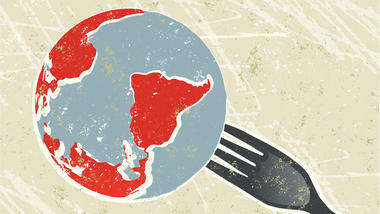
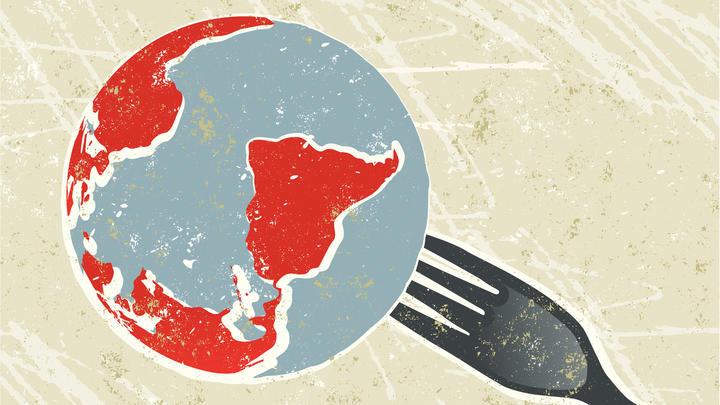
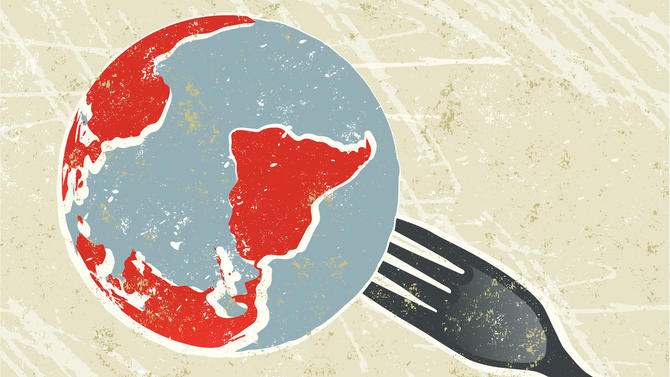
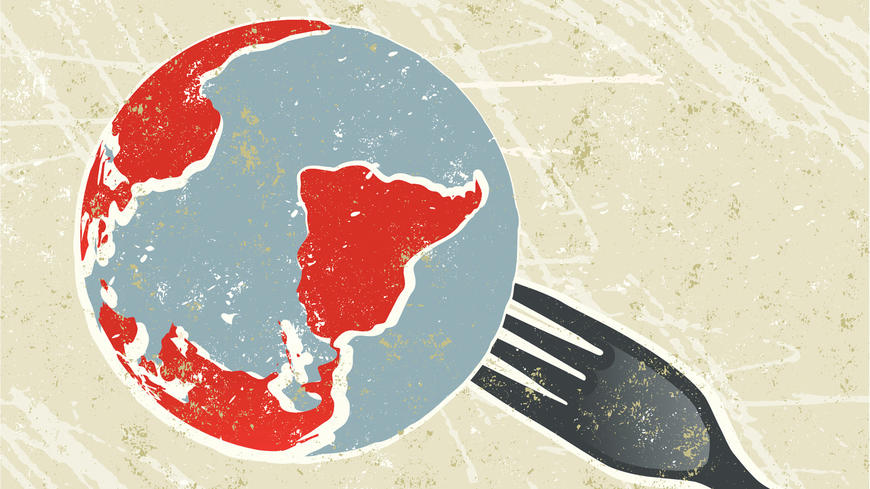
Almost a third of all greenhouse gas emissions occur as a result of food production and livestock sector activities rank first in these emissions (Nuwer, 2016). Therefore, studies show that the production of meat for food seven produces more greenhouse gases than the machine that this family uses (Nuwer, 2016). In addition, when talking about the benefits of a particular person, one may suggest that rejecting animal products can reduce personal spending on food. It is important not just to stick to a vegetarian diet, but also to understand what a great benefit lays in vegetarianism for all of humanity. (Nuwer, 2016). If one assumes that the entire population of the planet will become vegetarians, then emissions that worsen the ecology of the planet may decrease by 60%, and if all people become vegan, then 10% more of this expected figure (Nuwer, 2016). Looking at this problem on a scale, it becomes obvious that vegetarianism is a possible solution to the planet's environmental problems.
Refusal of meat eating is considered a necessary component of purification, without which intense spiritual ascent and happiness are impossible practically in all religious systems (Robbins, 2010). Sometimes purification of this kind is considered a lot of the elect, sometimes all the adherents of this religious system. A person who eats meat can say that he or she does not kill anyone, but in fact when buying meat in a store or on the market, he pays his money for someone else to commit this murder for him. This contradicts the dogmas of many religious teachings, especially Eastern religion and philosophy. Thus, a conscious transition to a vegetarian mode of life can be associated with taking care of health, caring for animals, combating greenhouse gases and the global economy, religious beliefs or a combination of these causes (Nuwer, 2016).
As for the shortcomings of vegetarianism and the challenges faced by vegetarians, a number of doubts and discussions exist. The main argument is the inability to create a balanced and healthy diet by eating only plant products because they do not contain all the essential amino acids and substances that the meat includes. The opinion that due to this shortage of serious illnesses and deterioration of the general condition of a person can develop exists. Thus, opponents of vegetarianism build their beliefs around the insufficiency of such nutrition and health problems, as a consequence. A particularly negative attitude is observed in veganism, which is the most severe form of vegetarianism and excludes all animal products strictly restricted, such as meat, fish, seafood, dairy products, eggs, and honey.
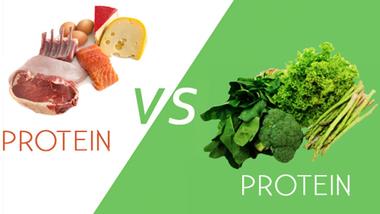
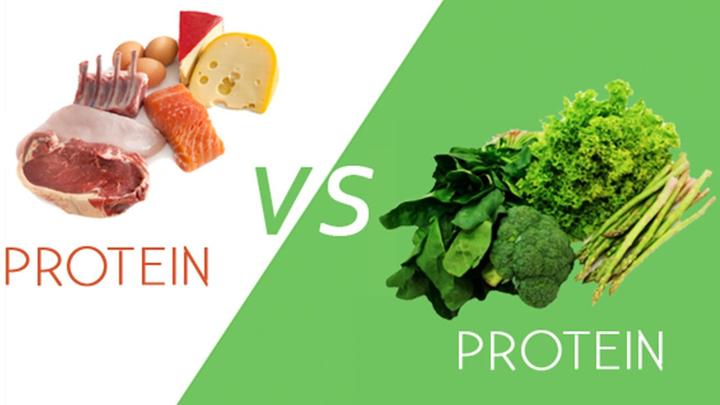
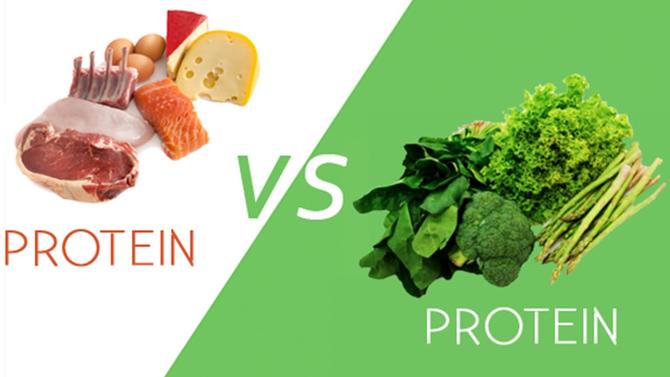
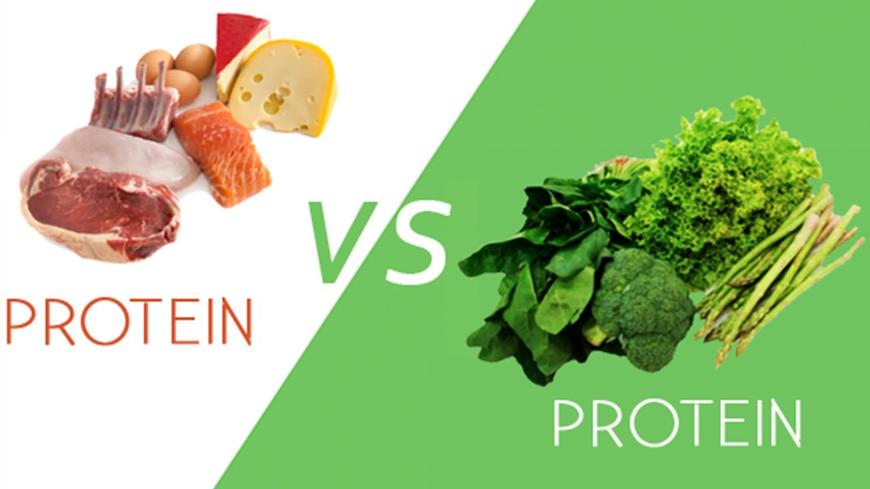
Opponents of such food insist that such a diet is meager and does not allow for a full-fledged lifestyle. However, a lot of modern research shows that a deliberate approach in such nutrition does not harm the body, but even improve a person's physical condition, not to mention the economic and environmental advantages for the world. Meat eaters insist that animal protein is necessary for a person and giving up on it can shorten life and its quality. However, comparative studies have shown that vegetarians 24% less die from coronary heart disease than people who eat meat (Key et al., 1999). In addition, the overall comparison indicates that vegetarians die from various diseases 5% less frequently than meat eaters (Key et al., 1999). Nutrition researchers argue that the right selection of foods in an individual diet can ensure the complete satisfaction of the body's needs and benefit it (Craig and Mangels, 2009). Some predictions show that if the entire population of the planet begins to lead a vegetarian lifestyle, 7 million people will be able to save from death (Nuwer, 2016). Speaking about the transition to veganism, scientists say about 8 million lives saved (Nuwer, 2016). Thus, such a proposition shows that veganism is not only not harmful, but it can even more positively affect the health of people. These convincing arguments show that, with an adequate and correct approach, vegetarianism does not put any serious tests before the person, but, on the contrary, contributes to the improvement of the quality of life.
Plants have the ability to synthesize amino acids from air, soil, and water, but animals can only get proteins through plants: either by eating them or by eating animals that have eaten plants and have absorbed all their nutrients. Therefore, a person has a choice: to receive them directly through plants or bypasses, at the cost of large economic and resource costs - from animal meat. Thus, meat does not contain any amino acids other than those that animals receive from plants - and the person himself can receive them from plants (Craig and Mangels, 2009). Moreover, vegetable food has one more important advantage: together with amino acids, you get the substances necessary for the complete assimilation of proteins: carbohydrates, vitamins, trace elements, hormones, chlorophyll, etc.
However, in meat, there are many undigested harmful substances, which, while remaining in the intestines, poison the body. In addition, one must remember that meat is processed with special chemicals, nitrites, and preservatives that contribute to the preservation of bright red color. Studies have shown that many of these chemicals have properties that stimulate the development of cancerous tumors (Robbins, 2010). The problem is further complicated by the fact that a huge amount of medicines, hormones, and antibiotics are added to the cattle (Robbins, 2010). In addition, an important source of toxic substances in meat is a hormonal surge that occurs as a result of stress before slaughter, which is supplemented by the stress experienced by animals during loading, transportation, unloading, stress from cessation of nutrition, from crowding, injuries, overheating or hypothermia (Robbins, 2010). Another, harmful component of meat is cholesterol. Heart disease usually begins with an increase in the blood of this substance (Craig and Mangels, 2009).
Proceeding from the listed advantages of a vegetarian way of life, one can assume that if all people switch to vegetarianism; this will have a positive effect both on the health of mankind and on the planet as a whole. Nevertheless, if we assume that such an option is possible, a number of complexities may arise in the future. Thus, in case all refuse meat, there will be difficulties in switching to the production of plant food in the right amount, as well as the restoration of land and natural conditions. In addition, many people will lose their jobs related to the production of meat products. It should be borne in mind that not all regions of the world are rich in fertile soil and natural conditions for growing the required number of plants, and this is a great obstacle to the abandonment of livestock farming or its substantial reduction. However, with an organized approach, all these difficulties can be overcome. Thus, people will be able to work in agriculture and restore agricultural lands necessary for growing plants (Nuwer, 2016).
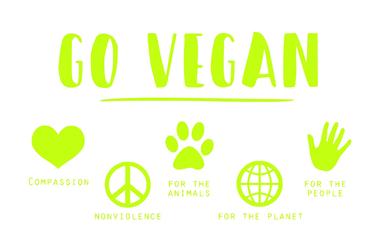
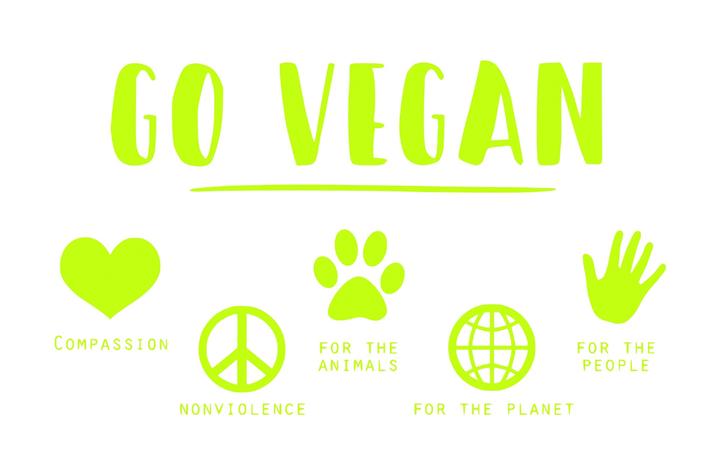
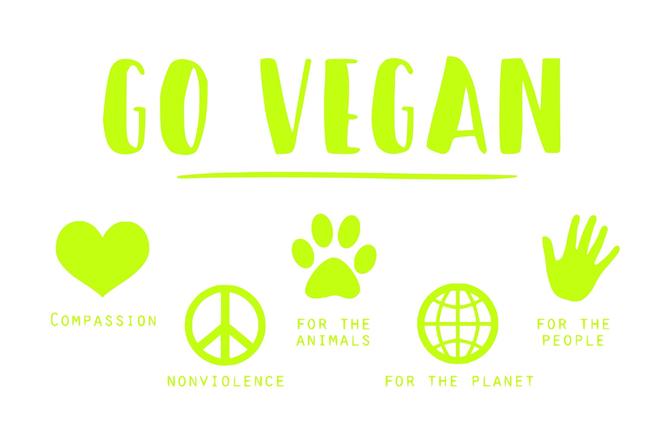
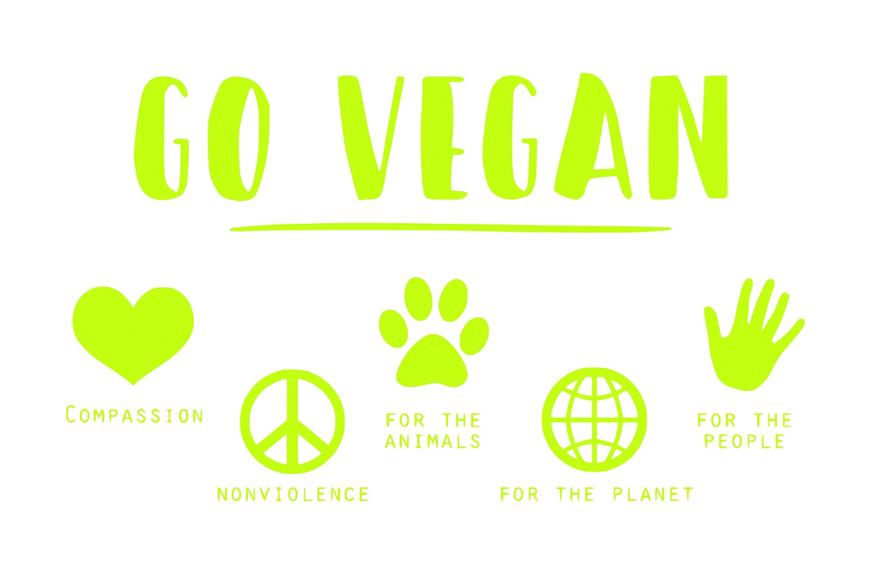
Conclusion
Thus, despite discussions and some doubts related to the use of the vegetarian lifestyle, every year and with each new study, it becomes increasingly obvious that a vegetarian diet contributes to the strengthening and maintenance of human health. Vegetarian food is an important factor in restoring vitality, purifying the body of harmful substances, slags, a means that stimulates, activates its internal forces for recovery. Vegetarianism is an important step towards a perfect society. The positive effect of vegetarianism and veganism on people's lives lies not only in the health benefits of a particular individual, but also creates a set of chains of positive changes in various areas of life. Thus, improving living standards and health can significantly reduce waste on medical care and improve the situation of global GDP (Nuwer, 2016).
Correctly planned nutrition on a plant basis provides the person with all the necessary components and helps prevent a number of chronic diseases. Moreover, such a diet is useful to everyone and will help to avoid many diseases in any condition of the body, including pregnancy and feeding, and at any age, including children, provided a varied, complementary diet (Craig and Mangels, 2009). In this case, it means a full-fledged and properly formulated vegetarian diet, which excludes the appearance of any shortages. Nowadays, a vegetarian diet is very popular all over the world; people from different regions prefer it.